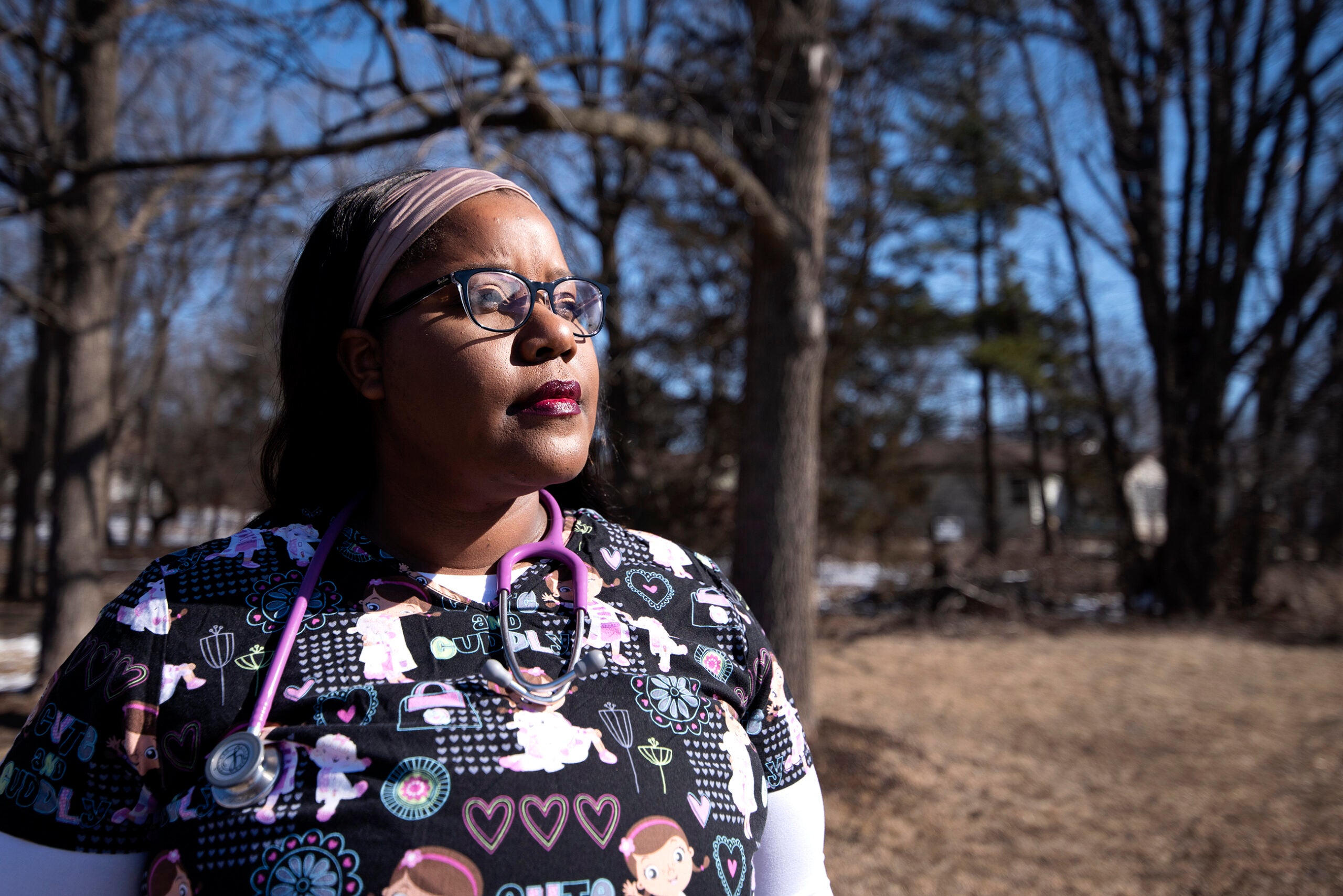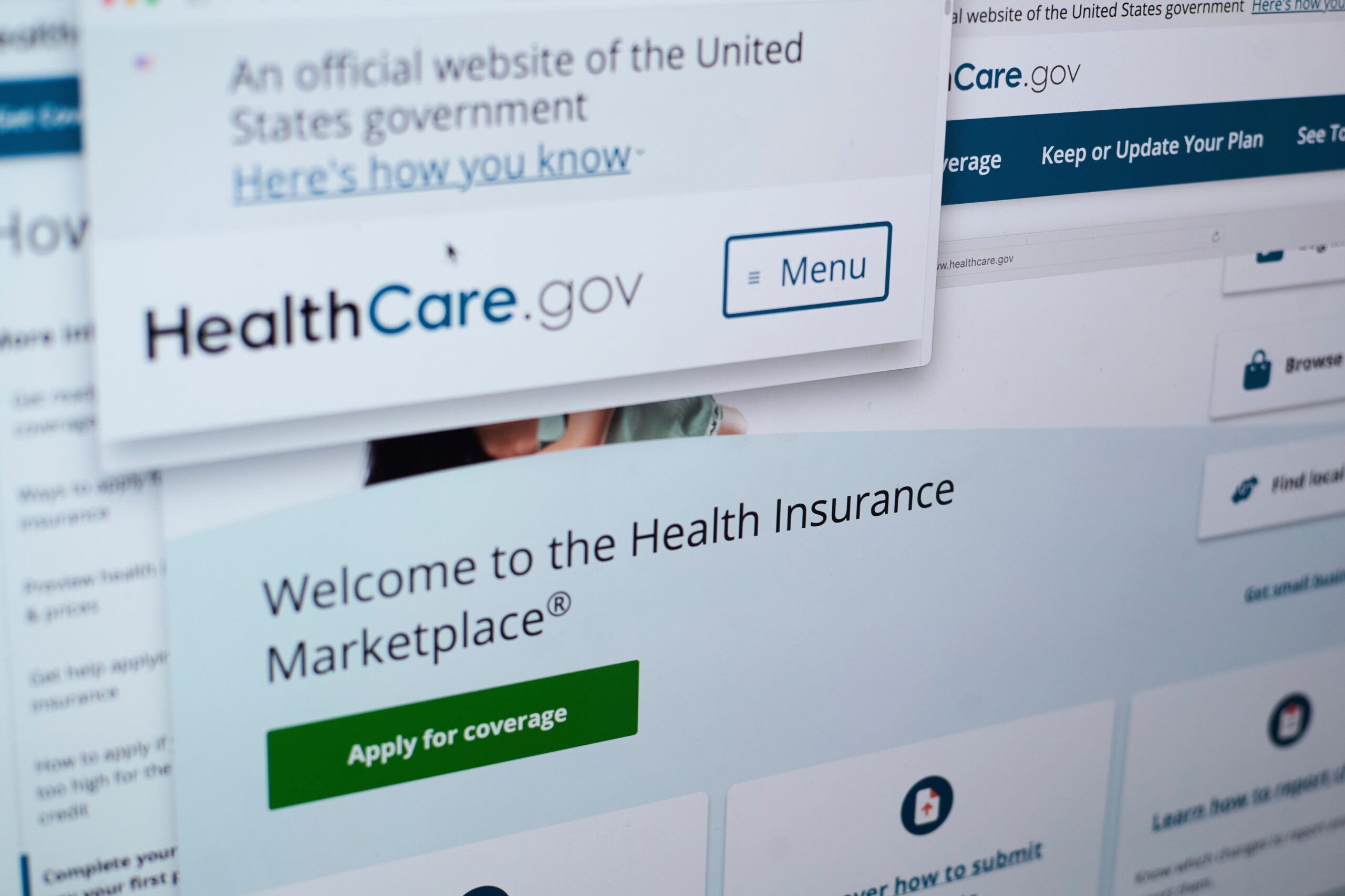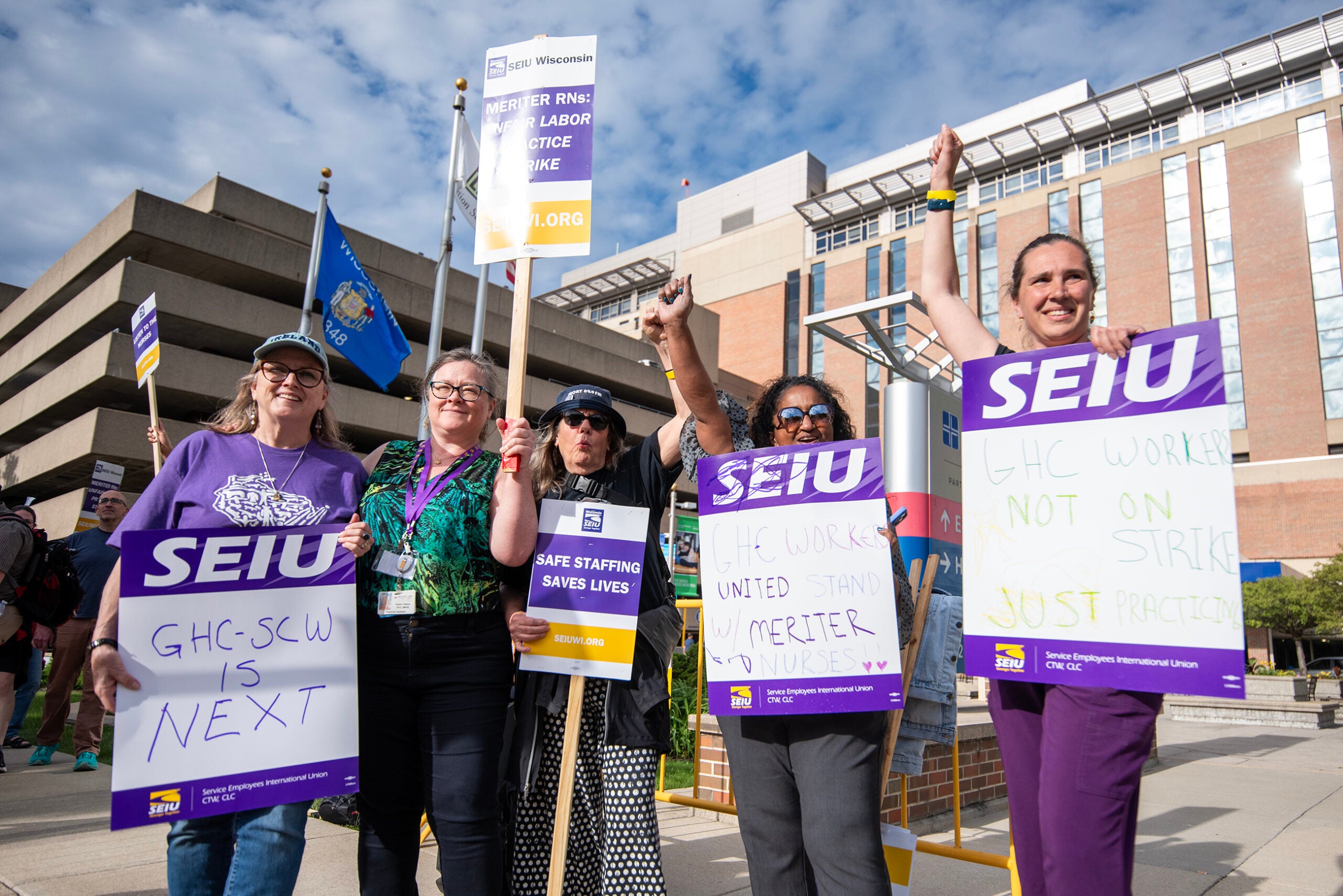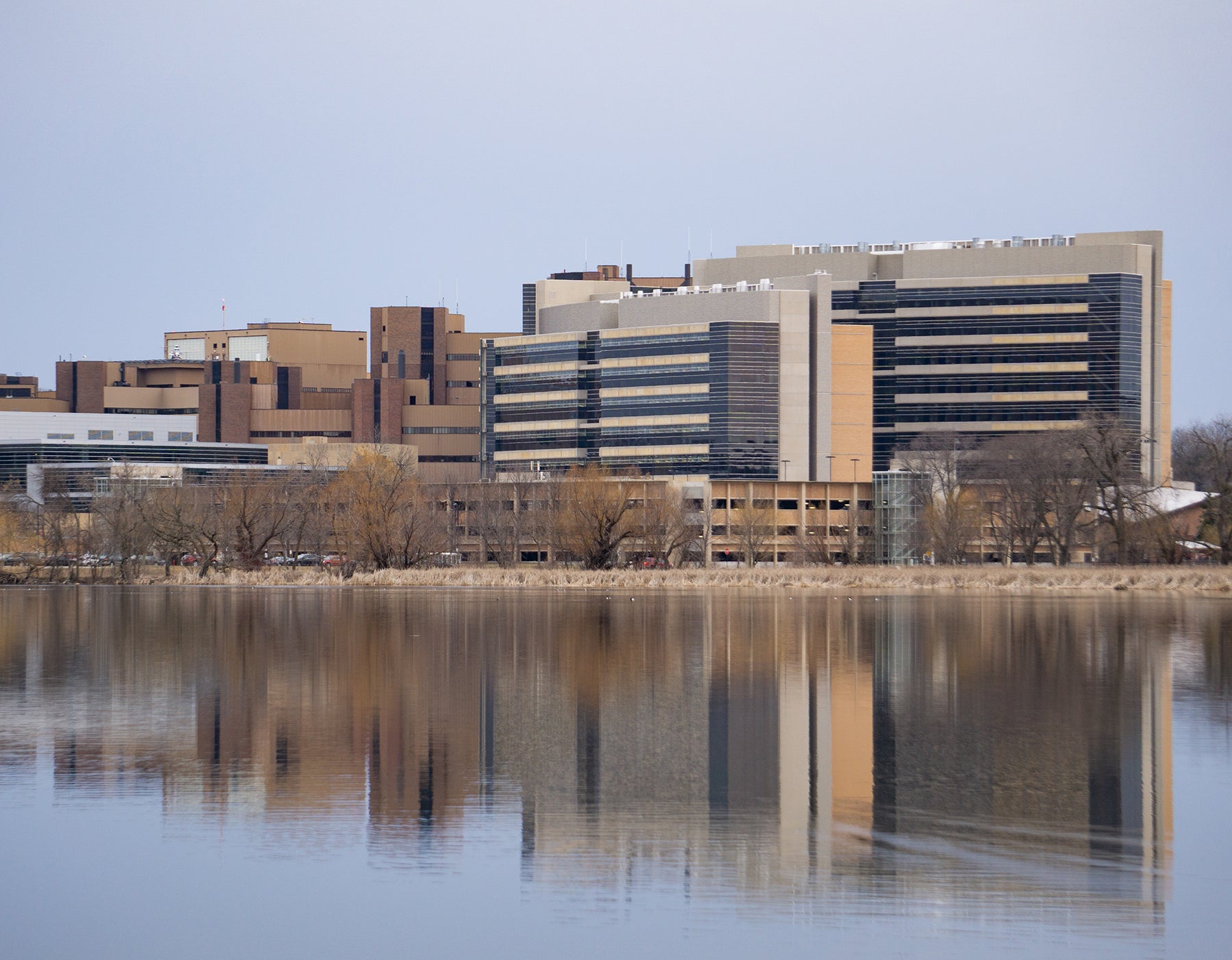Before March 2020, nurse Sharmaria Russell was working in a psychiatric ward in a Madison-area hospital. But things changed for her shortly after the coronavirus pandemic hit Wisconsin, when she was transferred to a general care unit.
“Nurses were pulled from everywhere,” she said. “It didn’t matter what your specialty was or whether you had a lot of experience.”
Russell primarily treats COVID-19 patients now as a medical-surgical nurse. The pandemic has brought a lot of lasting changes in health care, she said, like telehealth and widespread masking. But for Russell, the pandemic’s longest-lasting legacy will be on her mental health.
News with a little more humanity
WPR’s “Wisconsin Today” newsletter keeps you connected to the state you love without feeling overwhelmed. No paywall. No agenda. No corporate filter.
“It’s just been incredibly hard,” she said.
Beginning in March 2020, health care workers were lauded as heroes. Now, two years into the pandemic, burnout in the health care field will be one of the pandemic’s many lasting effects.
“We have really got to be aware that their mental health may be destroyed at some point,” Russell said of nurses who have been working through the pandemic.
According to a 2021 survey by the Kaiser Family Foundation, 62 percent of frontline health care workers said COVID-related stress has had a negative impact on their mental health.

Russell worries that a generation of health care workers will suffer because of what they’ve seen over the past two years.
“We’re always sitting here thinking like, ‘Oh, my god, did this person make it through the night?’” she said. “Carrying that type of weight around is mentally exhausting.”
Sarah Endicott, a clinical professor at the University of Wisconsin-Madison School of Nursing, shares Russell’s concerns. Her students, who are registered nurses studying to become advanced practice nurses, have shared traumatic stories.
“The emotion that was coming out of students in a place where they could talk about what was happening to them — it’s been shocking,” she said.
She said dealing with people who are not taking measures to slow the virus’ spread, like getting vaccinated, can be frustrating and hurtful.
“The nurses who are witnessing what’s really happening in the worst of the worst situations of the pandemic feel very isolated from their communities and from others who don’t realize what they’re going through,” Endicott said.
One potential consequence of the pandemic’s mental toll is people leaving the health care field, said Ann Zenk, Wisconsin Hospital Association’s senior vice president. According to Zenk, there’s been an increase in people changing jobs or leaving their positions over the last year.
That, plus the so-called “silver tsunami” of expected retirements of an older generation of workers has led to an increase in vacancies in a number of health care professions, according to a new Hospital Association report.
The report said registered nurse vacancies in the state were the highest they’ve been since 2005. That could affect the overall level of experience and knowledge in health care settings, Zenk said.
“Hospitals and health systems and their workforces have to work really hard to figure out how we are going to preserve the institutional knowledge,” she said.
But Zenk also said it’s not all bad news. Enrollments in nursing schools and applications to medical schools are up, despite the pandemic’s ravages.
Patricia Téllez-Girón, a family medicine professor at UW-Madison, can also see a silver lining in the way health care workers have united to fight the pandemic.
“I think it was beautiful just to see how we all came together in the medical field,” she said.
Téllez-Girón said they’ve been lucky to not lose any staff at the Wingra Family Medical Clinic, where she practices. Still, she said it has been an exhausting two years, especially for physicians of color, who have been asked to connect with and care for their communities.
“That’s why we need to have more of us,” Téllez-Girón said.
In the meantime, she thinks more flexibility for health care workers, more time with patients and better pay would help ensure Wisconsin’s health care future. And, she would like to see extra appreciation for health care workers who have worked through the pandemic.
“We need a massage to start with,” she said, laughing. “Now that maybe things are a little bit under control, to say ‘We really thank you for what you have done.’”
This week, WPR is bringing you stories reflecting on the last two years of the pandemic. They include stories on long haulers, masking, health care workers, education and work. For more stories on COVID-19, visit wpr.org/COVID.
Wisconsin Public Radio, © Copyright 2025, Board of Regents of the University of Wisconsin System and Wisconsin Educational Communications Board.







